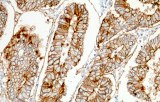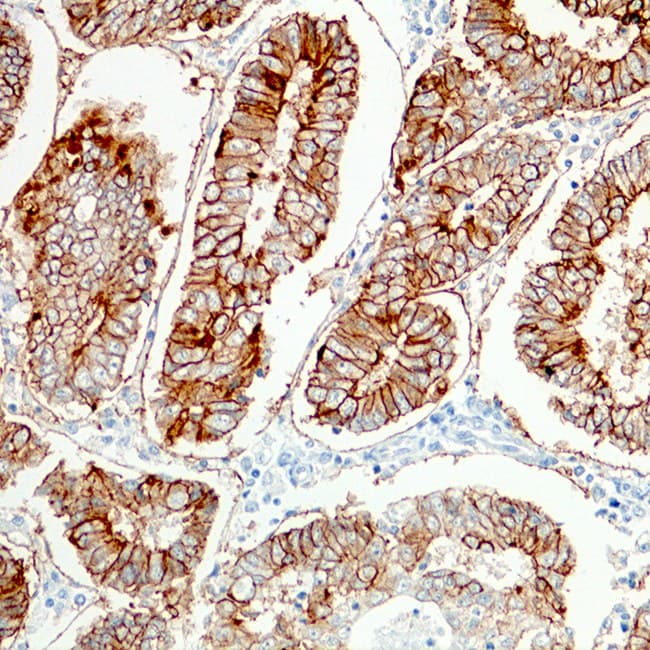
Anti-EpCAM CE/IVD for IHC - Cytopathology
Epithelial Cell Adhesion Molecule (EpCAM) is a highly conserved type I transmembrane glycoprotein that mediates cell–cell adhesion in epithelia. EpCAM is expressed on most normal and malignant epithelial cells. Ep-CAM is also known as epithelial cell adhesion molecule or MOC31 or Ber-EP4. It is normally present on most baso-lateral surfaces of normal epithelial cells and is absent in myoepithelial cells, hepatocytes, adult squamous epithelia, mesothelial cells, and fibroblasts. Anti-EpCAM stains most adenocarcinomas and neuroendocrine tumors, including small cell carcinomas. A minority of renal clear cell carcinoma, renal oncocytoma, and hepatocellular carcinoma stain positively for EpCAM, while Anti-EpCAM stains nearly all basal cell carcinoma. Anti-EpCAM stains chromophobe renal cell carcinoma, papillary renal cell carcinoma, and cholangiocarcinoma more frequently. Anti-EpCAM can be useful for distinguishing malignancy in the peritoneal and pleural cavities.

Search result : 3 product found
Refine your search :
- Unconjugated 3
- human 3
- Primary antibody
- mouse 3
- IHC 3
- IHC567 3


